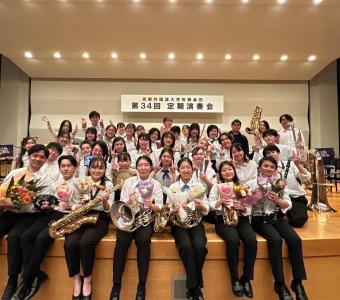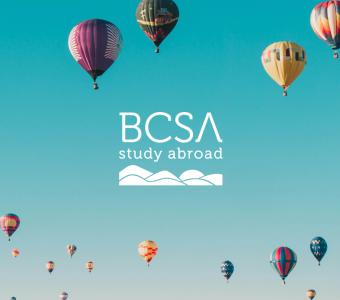
By: Harris Green, a member of the Studies in China Alumni Society of British Columbia (SCAS-BC).
My first study abroad experience was almost 7 years ago when I took a leap to study in Lund, Sweden for 6 months. The desire to continue living overseas began to build after returning home to Vancouver. Those feelings are what inspired me to work in Shanghai for the last 2 years. The effects from these study/work abroad experiences on how I value the interconnectedness of cultures and the importance of cross-cultural experiences has only compounded in the face of the current COVID-19 situation.
Despite the current closing of borders and fear of the unknown in this situation, my most recent life in China has convinced me that combatting these fears with empathy and understanding of other cultures is even more vital than ever. How did living overseas teach me this?
---
Value in being the foreigner or “outsider”
Before moving to China, I had never fully experienced the challenges of being a visible “outsider” in a country. Upon arrival, I did not know a word of Mandarin, I only had a vague understanding of “China” as a single entity, and as a tall, white, blond-haired person I stood out visually in every crowd.
Conversations flowed around me in languages I couldn't understand and people lived in line with cultural norms that I didn’t even know existed - it was incredibly humbling to face this challenge and ostracization. However as a white male, I was not subject to xenophobic attacks or overt racism towards my culture that many foreigners face in Canada. Nor was I forced to live in that new environment due to fleeing my own country for my own safety - a reality of many refugees living in Canada now.
The challenges I faced being an expat were nothing compared to those faced by international students, immigrants, and refugees adapting to life in Canada.
People are the same everywhere
Without having lived abroad it can be easy to be lulled in to the concept that you have nothing in common with people from cultures other than yours. Without experiencing the everyday life and celebrations in different cultures, this unknown can turn to fear and distancing of that culture. What can a family in “small town” China have in common with a city kid from Vancouver?
Apparently a lot. I spent 5 days celebrating Chinese New Year in the 700,000 person town of Mingguang (明光) in Anhui (安徽) province (a few hours by high speed train from Wuhan) with the family of my good friend, Kevin. His parents questioned him about the lives of old childhood friends and told him to pick up after himself when at home. They sat together binging their favourite TV shows in between gorging on home-cooked food and going out to family gatherings. At many points I almost thought I was back home celebrating Christmas with my family.
At the end of the day, people are just...people. No matter where they are from. You can always find something in common. It can be as simple as a craving for your parent’s home cooking or something deeper such as...wait, food is one of the deepest ties between cultures…
“Walk in someone else's shoes or at least eat their food, it's a plus for everybody.”
Anthony Bourdain put it best. Food is the ultimate language for breaking down cultural barriers and xenophobic fears. You don’t need to know the verbal language or understand someone’s culture to share a delicious meal. I often found myself being embraced by local strangers just by sitting down to join them in sharing a meal. I tried the food they gave me. I experienced the same pleasures as them while eating. We shared an experience together. No need to over complicate things.
Verbal language is not the only way to communicate. Allow food to do the talking and you will see how much deeper your connections with other people become - especially when you come from different backgrounds.
Be Curious: As life in China was new to me, I found myself walking the streets with a new sense of curiosity about what I was seeing - what was the history of this neighbourhood? What food is that restaurant serving? I wonder for how long that family has been running that noodle stall? What is that pair of old friends discussing?
This curiosity bled in to my conversations with strangers, new friends, and even with old friends from home. I found that even despite a major language barrier, people were intrigued to learn about me and my background. How rude it would be for me to not express the same curiosity about their lives. By asking questions, allowing others a chance to share their stories, and listening intently opened up a society that had originally seemed so distant.
------
When I reflect more on it, all of these learning experiences that I took from my time living in China (as well as studying in Sweden) boil down to one common theme - the importance of empathy and understanding of other people no matter what their background.
In the midst of the COVID-19 pandemic, how can I (and others) continue to learn from these experiences? (Keep in mind it is vital to only do these if they are in line with the current safety measures communicated from your local government agency. Even if you can’t leave your house, there are so many ways to develop your cultural empathy online).
- Support your local immigrant owned restaurants by ordering (contact free) takeout and delivery. And talk to them!
- Doing groceries? Try your local international grocer. Ask them about their day amidst these struggles and really listen. Try to understand the further challenges they are facing right now.
- Embrace international movies and books - read about/watch the experiences of people in other countries.
- Try cooking a meal from a new culture!
- Engage with local organizations who empower immigrants/refugees and see if there are any online resources you can learn from.
Interested about SCAS-BC and how you can participate? Click here to find out!







0 Comments
Leave a Comment